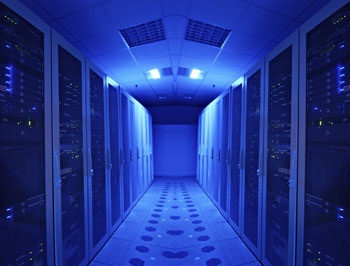The problem of confidential data security is something that has always been relevant for business owners. Many companies all over the world are searching for the right solution for storing and exchanging documents with minimal risk of data leakage. Virtual Data Room is a unique solution that has spread all over the world in the last few years. This digital solution not only helps to store your data but also to close deals and improve workflow. In this article, we will explain the concept of data room in more detail.
What is a virtual data room?
A virtual data room is an online storage space designed mainly for secure storage and exchange of confidential documents. The space is also used for a variety of business transactions, which typically include an M&A transaction and all the processes that precede it, fundraising, and IPOs. This helps speed up the transaction, simplify the work and increase efficiency.
Before VDRs came into circulation, a physical data room was used for such actions, which has many disadvantages compared to a virtual one. They were not flexible, secure, or cost-effective enough.
What are the advantages of a virtual data room?
With the advent of digital technology, the fear of security has increased every day. Data leakage is every company’s worst nightmare and finding a solution that would 100% protect them from threats is impossible. However, with VDRs, you can significantly minimize your chances as the space offers the following benefits:
- Secure data storage
VDR allows space administrators complete control over other participants’ access to data. Upload to VDRs documents of absolutely any level of importance, as the space also provides you with strong encryption methods, at rest and data transfer, dual authentication to protect against unauthorized access, and security certificates that guarantee compliance with all international standards.
- Secure data sharing
Often, data breaches could also be due to human error, or unreliable employees. VDRs have foreseen such an outcome. Therefore, administrators (who must be exceptionally trustworthy individuals), can set detailed permissions for access to documents, both to their employees and to invited users. You can prohibit copying, printing, editing, uploading, and forwarding documents.
- Saves money
Compared to VDR’s predecessor, the physical data room, it provides the most cost-effective collaboration and savings on consumables. You don’t have to pay for room rent, employee salaries, security methods, paper, printing, and so on. All that you save can be spent in another, much more useful way.
- Saves time
VDR provides the flexibility of a platform that allows you to use it anytime, anywhere. VDR generally supports any kind of OS, so you can perform your duties out of the office as well, without having to meet in person.
- Transparency with investors and lenders
If you’re a startup company, you need to work hard at building trust between your investors or lenders. The Data Room will help you in this case as well, as it is very transparent and allows invited investors or other users to monitor your work and stay in touch with you at all times.
How to choose the best virtual data room?
Of course, the benefits that VDRs can provide are great, but they are different for every company, so for a data room to benefit you you must follow these principles:
- Define your needs
- Check the features that your provider offers
- Consider your financial resources

